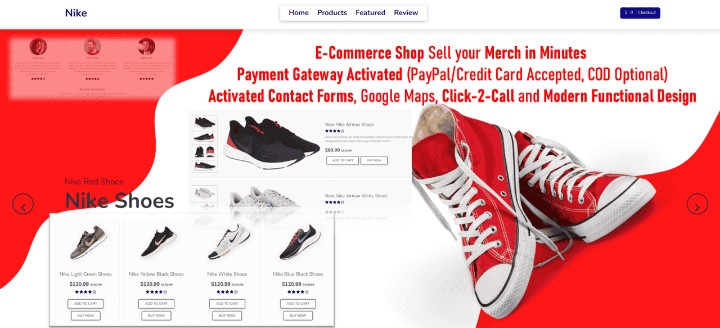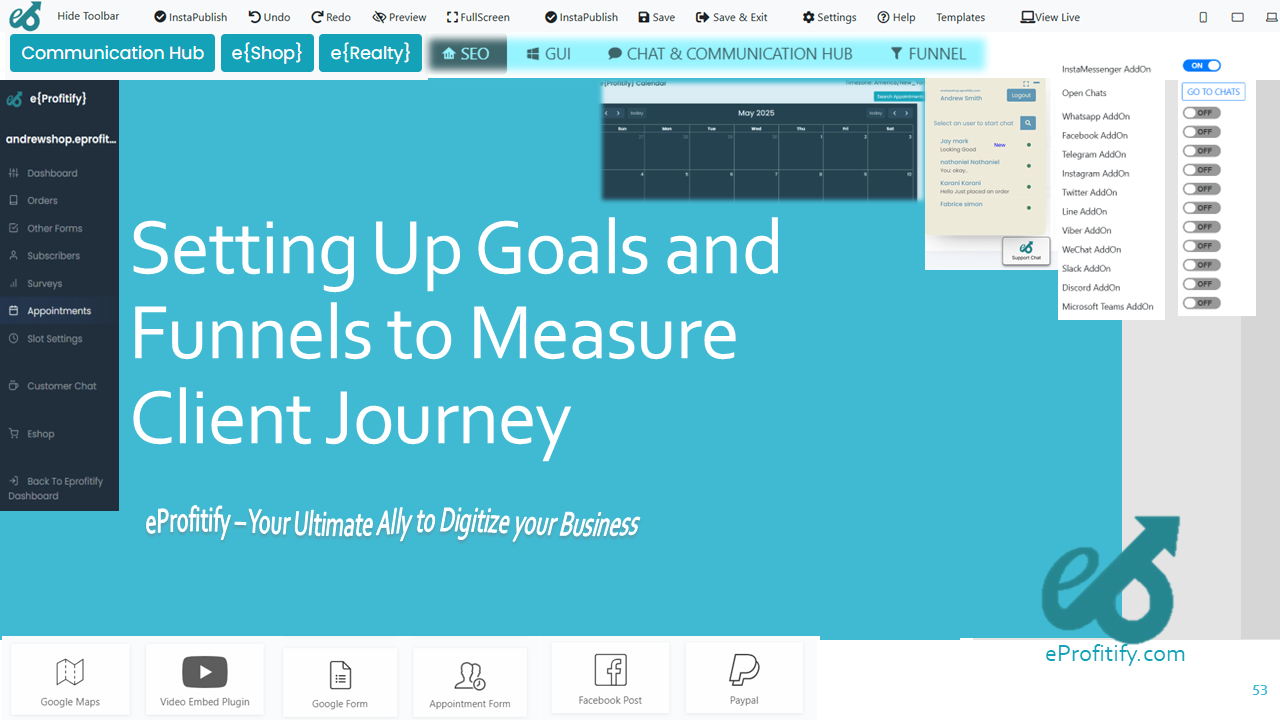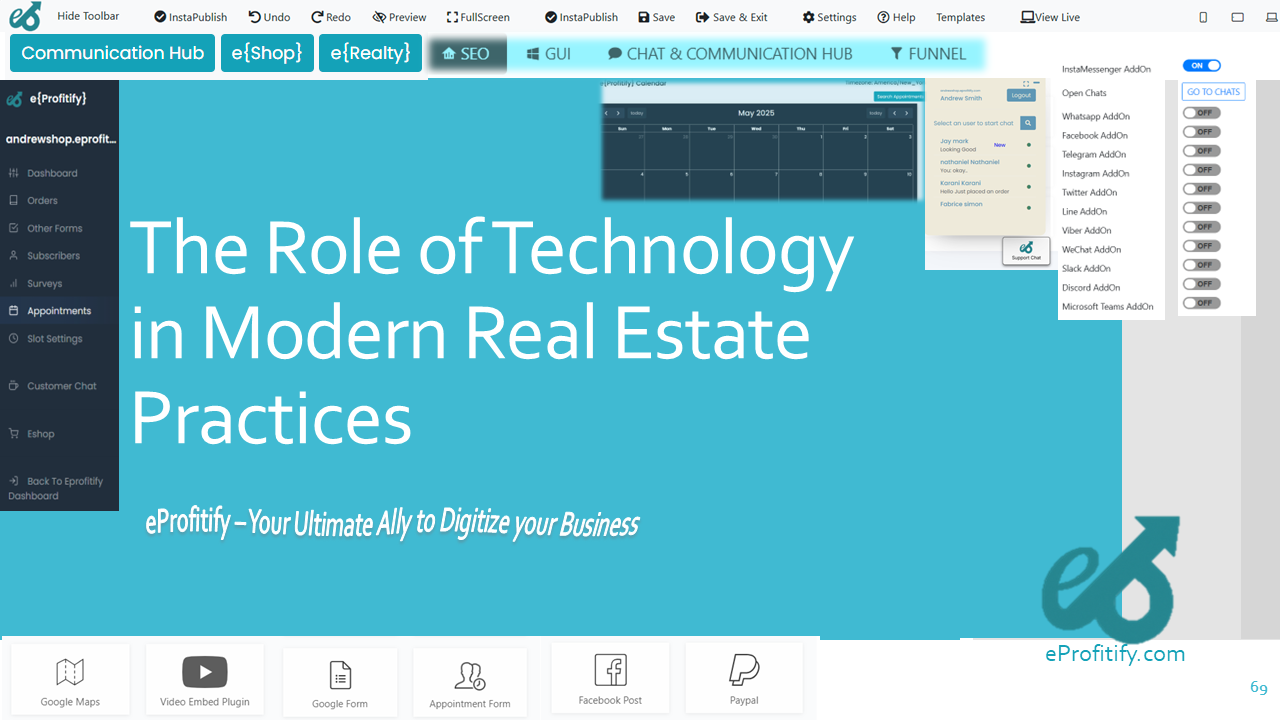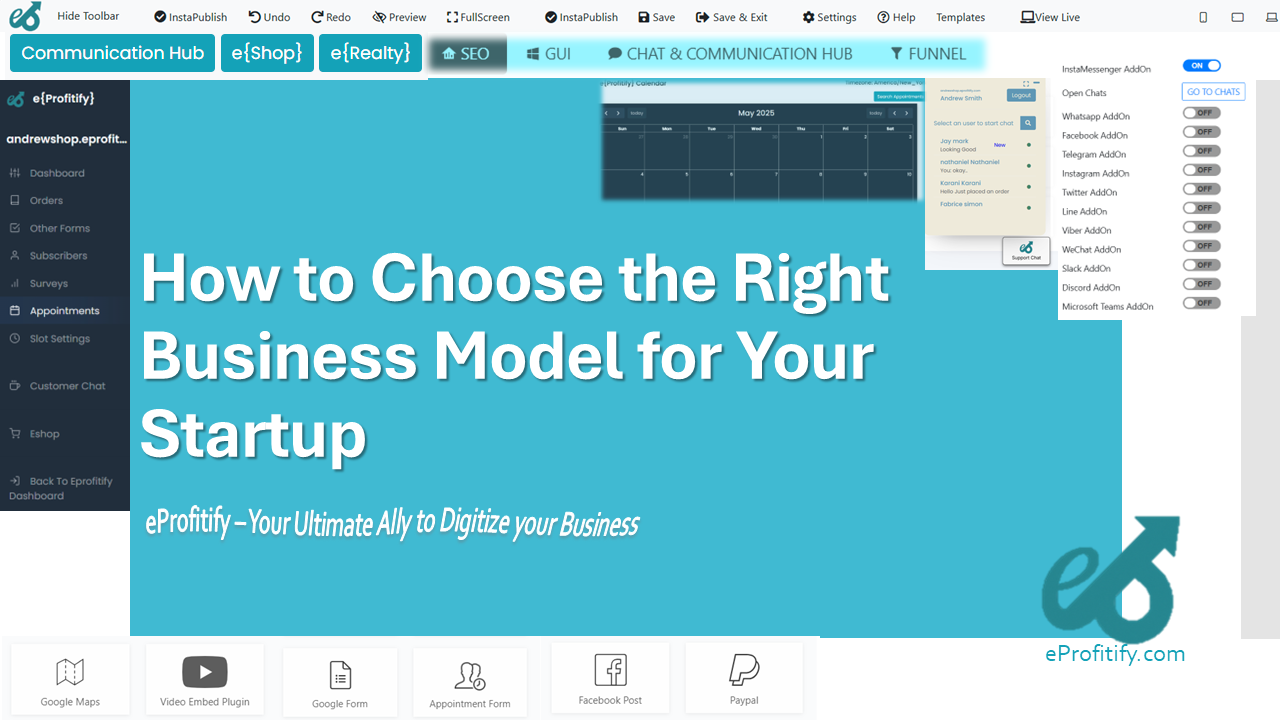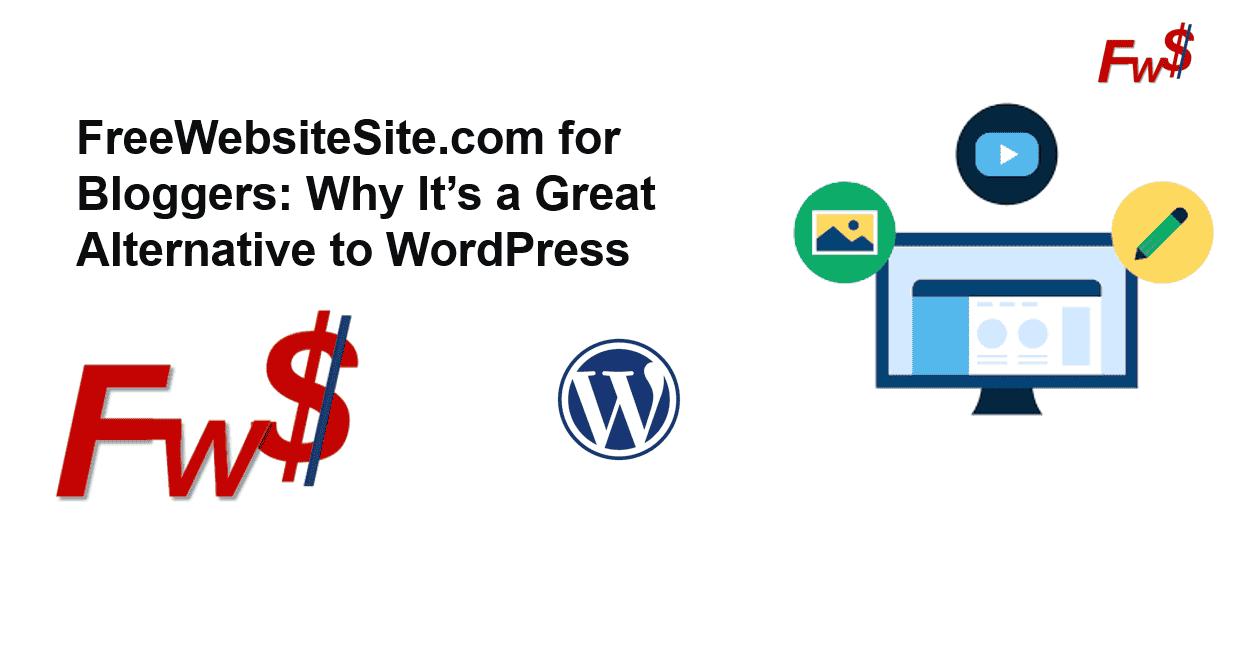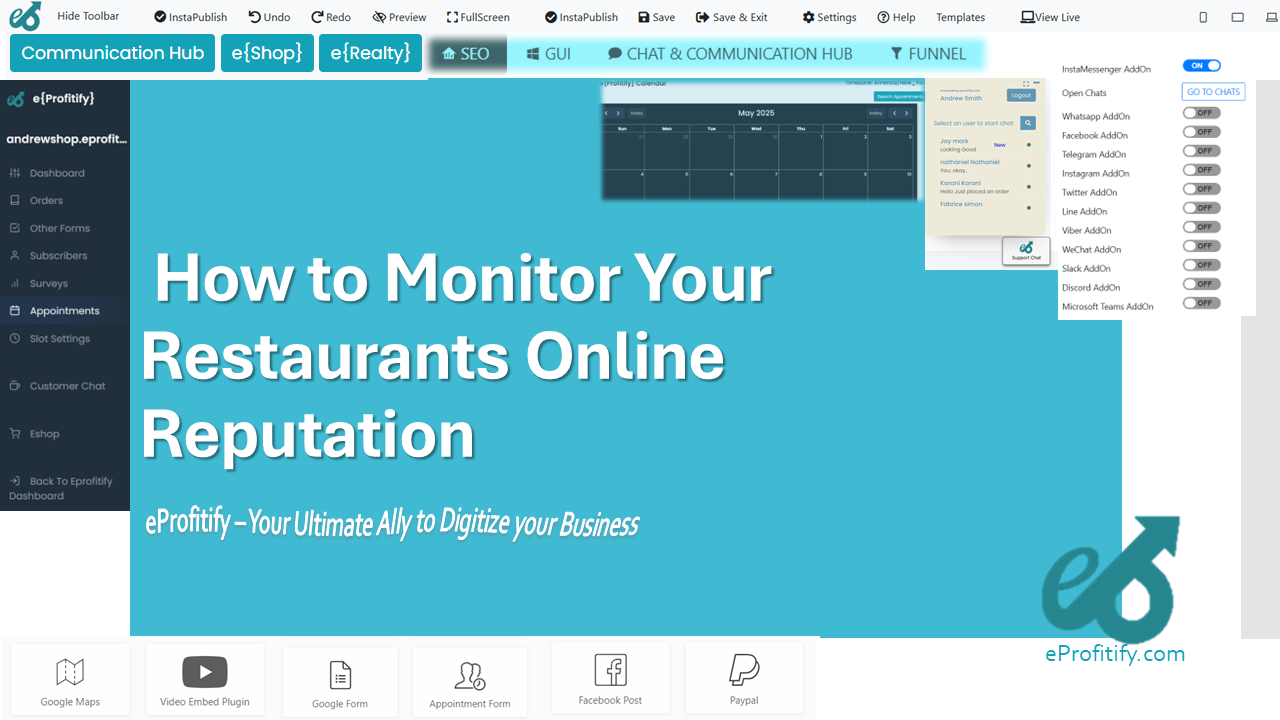How to Choose the Right CRM for Your Real Estate Business
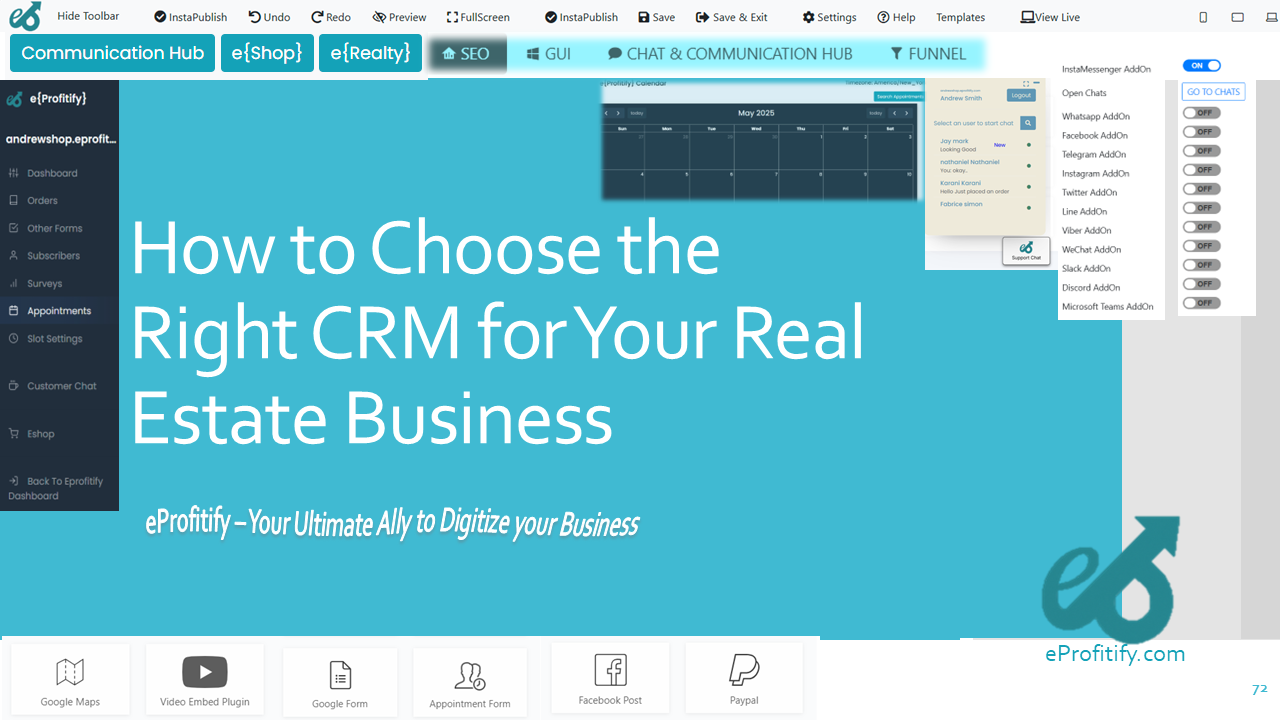
How to Choose the Right CRM for Your Real Estate Business
The real estate industry is competitive, fast-paced, and relationship-driven. To stay ahead, agents and brokers must manage leads, nurture client relationships, and streamline operations efficiently. Customer Relationship Management (CRM) software has become an indispensable tool for real estate professionals, enabling them to automate tasks, track interactions, and close deals faster. However, with dozens of CRM options available, choosing the right one for your business can feel overwhelming.
This guide will walk you through the key factors to consider when selecting a CRM tailored to real estate, supported by industry statistics. Plus, we’ll explore why innovative platforms like eProfitify—a leading website publishing and management tool with integrated CRM, instant messaging, appointment scheduling, ecommerce, and more—are revolutionizing how agents operate.
Why Real Estate Businesses Need a CRM
Before diving into selection criteria, let’s look at why CRMs are essential:
- 71% of real estate agents credit CRM software for increasing productivity and client retention (HubSpot).
- Businesses using CRM report an average ROI of $8.71 for every $1 spent (Nucleus Research).
- Automated workflows reduce administrative tasks by 20–30%, freeing agents to focus on closing deals (McKinsey).
A CRM centralizes client data, tracks communication history, and automates follow-ups, ensuring no lead falls through the cracks. For real estate professionals juggling listings, showings, contracts, and client inquiries, these tools are game-changers.
Key Considerations When Choosing a Real Estate CRM
1. Define Your Business Needs
Every real estate business has unique requirements. Start by answering:
- What size is your team? Solo agents need different features than multi-agent firms.
- What’s your niche? Residential, commercial, or rental markets demand specialized tools.
- What are your pain points? Lead generation, marketing automation, or transaction management?
For example, if you’re an independent agent focused on rentals, a lightweight CRM with lead capture and SMS reminders might suffice. Larger teams handling luxury properties may prioritize advanced analytics and collaborative tools.
2. Essential CRM Features for Real Estate
Look for these core functionalities:
- Lead Management: Track leads from initial contact to closing. Prioritize CRMs with lead scoring, segmentation, and automated follow-ups.
- Contact Database: A centralized hub for client details, communication history, and preferences.
- Email & SMS Automation: Send personalized drip campaigns, reminders, and updates.
- Appointment Scheduling: Sync calendars and allow clients to book viewings directly.
- Integration with MLS: Direct access to Multiple Listing Services saves time updating property data.
- Pipeline Management: Visualize deal stages to forecast sales and identify bottlenecks.
- Mobile Accessibility: 64% of real estate professionals use CRM on mobile devices (Capterra).
Pro Tip: Platforms like eProfitify go beyond basic CRM by combining website hosting, instant messaging, ecommerce, and SEO tools in one suite. Its integrated appointment management system allows agents to sync showings with client calendars seamlessly—a major efficiency boost.
3. Integration Capabilities
Your CRM should integrate with tools you already use, such as:
- Email platforms (Gmail, Outlook)
- Social media
- Marketing tools (Mailchimp, Canva)
- Transaction management software
- Payment gateways (for ecommerce, deposits, etc.)
eProfitify stands out by offering built-in ecommerce functionality, enabling agents to sell digital products (e.g., guides, templates) or even process rental payments directly through their websites. This holistic approach eliminates the need for third-party plugins.
4. Scalability
Your CRM should grow with your business. For example:
- Small teams: Start with affordable plans offering core features.
- Expanding agencies: Opt for platforms that support unlimited users and advanced automation.
Stat Alert: 52% of CRMs fail due to scalability issues (Gartner). Tools like eProfitify offer customizable tiers, making scaling effortless as your client base grows.
5. User-Friendliness
A steep learning curve wastes time and money. Prioritize intuitive interfaces with drag-and-drop editors, tutorials, and 24/7 support. eProfitify simplifies workflows with an all-in-one dashboard where agents manage websites, chats, appointments, and CRM data without switching tabs.
6. Pricing & ROI
Compare pricing models:
- Subscription tiers: Monthly vs. annual plans.
- Per-user costs: Ideal for teams.
- Hidden fees: Watch for charges for onboarding, integrations, or storage.
Cost-Saving Insight: Platforms combining CRM with website management (like eProfitify) reduce expenses by eliminating separate hosting and tool subscriptions.
7. Security & Compliance
Ensure your CRM complies with data protection laws like GDPR and CCPA. Features like encryption, role-based access, and audit logs are non-negotiable in handling sensitive client data.
8. Reviews & Reputation
Research user reviews on G2, Capterra, or Trustpilot. For instance, eProfitify earns high marks for its responsive customer service and all-in-one capabilities tailored to real estate.
How eProfitify Elevates Real Estate CRM
While traditional CRMs focus solely on customer data, eProfitify provides a comprehensive ecosystem for real estate professionals:
- Instant Messaging: Engage leads in real time via integrated chat widgets, reducing response times.
- Appointment Management: Sync showings, inspections, and meetings via automated reminders.
- Ecommerce Integration: Sell digital products or process transactions directly on your website.
- SEO & Website Tools: Rank higher on search engines with built-in optimization features.
- Marketing Automation: Launch email/SMS campaigns from the same platform.
For example, a brokerage using eProfitify can host a property listing site, chat with potential buyers instantly, schedule open houses, and upsell home staging guides—all within one dashboard.
Final Steps to Implement Your CRM
- Train Your Team: Ensure everyone understands the CRM’s features.
- Migrate Data: Import contacts and listings securely.
- Monitor Performance: Track metrics like lead conversion rates and response times.
- Iterate: Adjust workflows based on feedback and analytics.
Conclusion
Choosing the right CRM for your real estate business requires aligning features with your goals, budget, and team size. Platforms like eProfitify offer a unique edge by combining CRM with website management, instant messaging, and ecommerce tools—streamlining operations while cutting costs.
With 68% of clients saying prompt communication determines their choice of agent (National Association of Realtors), integrating a CRM like eProfitify isn’t just a luxury—it’s a necessity. Invest wisely, and watch your efficiency, client satisfaction, and revenue soar.
[Call to Action] Ready to transform your real estate business? Explore eProfitify today and leverage its all-in-one platform to close more deals, faster.
